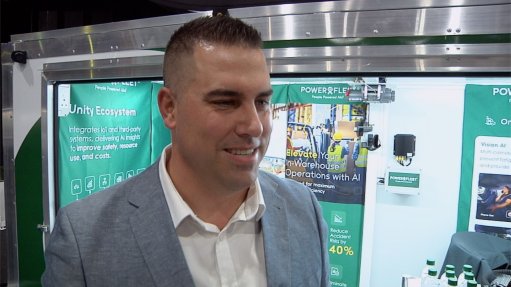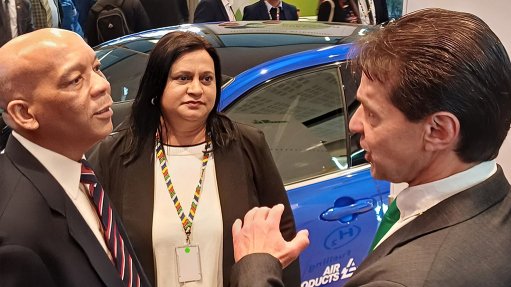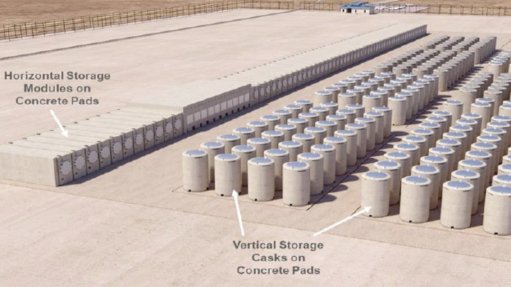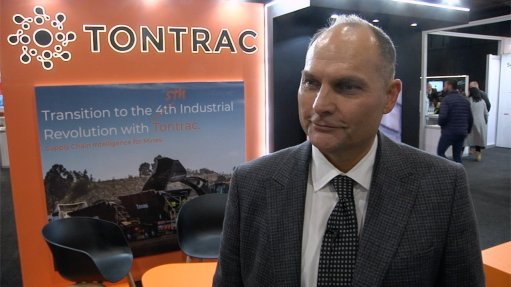Accelerating Renewable Energy Development in Africa
This article has been supplied.
Accelerating renewable energy development in Africa is crucial for several reasons, including improving energy access, reducing dependence on fossil fuels, mitigating climate change and promoting sustainable economic growth.
The amount of renewable energy that Africa needs varies depending on several factors, including population growth, rate of industrialisation, energy demand and the specific targets set by individual African countries. However, there is general consensus that Africa has significant untapped renewable energy potential that can contribute significantly to its energy needs.
Factors that influence the acceleration of renewable energy growth in Africa include:
Policy and Regulatory Frameworks: Governments can establish supportive policies and regulations to encourage renewable energy investments. This includes setting renewable energy targets, implementing feed-in tariffs, providing tax incentives, and streamlining permitting processes. Clear and stable regulatory frameworks help create an attractive investment climate for renewable energy projects.
Investment and Financing: Mobilising investment and financing is essential for renewable energy development. African country Governments can create favourable conditions for both domestic and foreign investments, including offering guarantees, subsidies and risk mitigation mechanisms. Encouraging public-private partnerships and working with international financial and local institutions can also attract capital for renewable energy projects.
Energy Access and Rural Electrification: Expanding energy access in rural areas is a critical aspect of renewable energy development. Off-grid and mini-grid solutions, powered by renewable sources such as solar and wind, can provide electricity to remote communities that are not connected to the main grid.
Capacity Building and Technology Transfer: Building local capacity in renewable energy technologies is crucial for long-term sustainability. African countries can invest in training programmes, establish partnerships with educational institutions and research centres and promote knowledge sharing among industry stakeholders. Facilitating technology transfer from more developed renewable energy markets can also accelerate deployment and reduce costs.
Regional Cooperation and Integration: Regional cooperation plays a vital role in accelerating renewable energy development in Africa. Collaborative initiatives can include sharing experiences, best practices, and knowledge among countries. Developing regional power pools and interconnectivity infrastructure can facilitate the integration of renewable energy sources and enable cross-border electricity trade.
Innovation and Research: Encouraging innovation and research in renewable energy technologies can drive advancements and cost reductions. Promoting partnerships between academia, industry, and research institutions can facilitate knowledge exchange and promote local innovation.
Public Awareness and Stakeholder Engagement: Raising public awareness about the benefits of renewable energy is crucial for driving its adoption. Engagement with communities, NGOs and civil society organisations to educate and involve them in the transition to renewables will aid the implementation of renewable energy programmes and projects.
It's important to recognise that Africa is a diverse continent, and strategies for accelerating renewable energy will need to be tailored to the specific needs and resources of each country. Collaboration, political commitment, and long-term planning are essential for successfully transitioning to a clean and sustainable energy future in Africa.
The Continent has the potential to harness its renewable energy resources and transform its energy landscape and these influencing factors will form part of the conference discussions at the 2024 Africa Energy Indaba to be hosted in Cape Town from the 5 – 7 March 2024. The event will unpack and explore opportunities for business to gain access to the rapidly growing renewable energy market in Africa.
Comments
Announcements
What's On
Subscribe to improve your user experience...
Option 1 (equivalent of R125 a month):
Receive a weekly copy of Creamer Media's Engineering News & Mining Weekly magazine
(print copy for those in South Africa and e-magazine for those outside of South Africa)
Receive daily email newsletters
Access to full search results
Access archive of magazine back copies
Access to Projects in Progress
Access to ONE Research Report of your choice in PDF format
Option 2 (equivalent of R375 a month):
All benefits from Option 1
PLUS
Access to Creamer Media's Research Channel Africa for ALL Research Reports, in PDF format, on various industrial and mining sectors
including Electricity; Water; Energy Transition; Hydrogen; Roads, Rail and Ports; Coal; Gold; Platinum; Battery Metals; etc.
Already a subscriber?
Forgotten your password?
Receive weekly copy of Creamer Media's Engineering News & Mining Weekly magazine (print copy for those in South Africa and e-magazine for those outside of South Africa)
➕
Recieve daily email newsletters
➕
Access to full search results
➕
Access archive of magazine back copies
➕
Access to Projects in Progress
➕
Access to ONE Research Report of your choice in PDF format
RESEARCH CHANNEL AFRICA
R4500 (equivalent of R375 a month)
SUBSCRIBEAll benefits from Option 1
➕
Access to Creamer Media's Research Channel Africa for ALL Research Reports on various industrial and mining sectors, in PDF format, including on:
Electricity
➕
Water
➕
Energy Transition
➕
Hydrogen
➕
Roads, Rail and Ports
➕
Coal
➕
Gold
➕
Platinum
➕
Battery Metals
➕
etc.
Receive all benefits from Option 1 or Option 2 delivered to numerous people at your company
➕
Multiple User names and Passwords for simultaneous log-ins
➕
Intranet integration access to all in your organisation


















